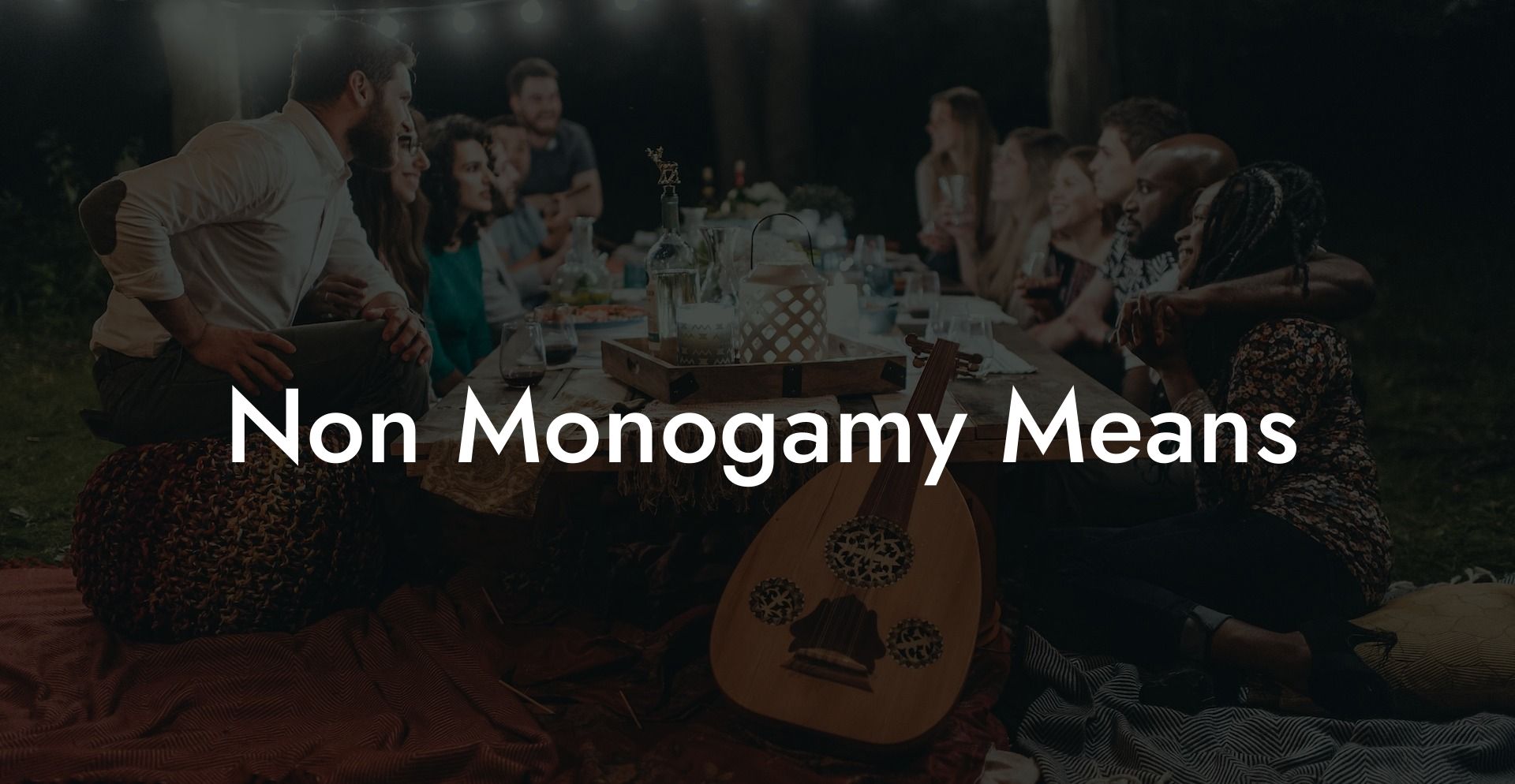You've probably heard the term non-monogamy, but do you truly understand what it means? Non-monogamy is an umbrella term used to describe relationships that do not follow a strictly monogamous structure. People engage in various forms of non-monogamous relationships for many reasons and understanding these different dynamics is essential to navigating them successfully. In this article, we'll explore the different facets of non-monogamy and break down the key factors that make each form unique.
Non Monogamy Means Table of Contents
Types of Non-Monogamous Relationships
There are several different styles when it comes to non-monogamous relationships. Some of the most common forms include:
Open Relationships
An open relationship is a committed relationship in which both individuals agree that they are allowed to have intimate or sexual experiences with others outside their relationship. Communication and boundaries are essential in maintaining a healthy open relationship.
Swinging
Swinging typically refers to couples who engage in sexual activities with other couples or single individuals together. This form of non-monogamy often has strict rules and guidelines to ensure all parties involved feel safe, respected, and comfortable.
Polyamory
Polyamory is a type of ethically non-monogamous relationship in which individuals engage in multiple romantic relationships. Each relationship has its unique dynamic, and consent and communication are key to maintaining harmony among all involved parties.
Relationship Anarchy
Relationship anarchy is a form of non-monogamous relationship in which those involved do not adhere to the typical expectations and constraints of societal norms when it comes to relationships. Each relationship functions according to the desires and agreements of the individuals involved.
Developing a Healthy Non-Monogamous Relationship
Healthy non-monogamous relationships have a few key common components:
Communication
- Open and honest communication is crucial in maintaining any relationship, but especially so in non-monogamous relationships.
- Regularly checking in with each other, discussing ground rules, and openly sharing emotions are all important aspects of communication in non-monogamous relationships.
Boundaries and Consent
- Establishing clear boundaries and ensuring all parties involved provide informed consent are essential for healthy non-monogamous relationships.
- Boundaries should be revisited and reassessed regularly, as they may change over time as the dynamics of the relationship evolve.
Trust and Security
- Trust and security are integral components of any relationship, especially when exploring non-monogamous dynamics.
- Building trust through consistent communication, respecting boundaries, and providing emotional support can help strengthen your non-monogamous relationship.
Non Monogamy Means Example:
Consider a couple named Jane and John who, after some discussion, decide to explore non-monogamy and open their relationship to outside sexual encounters. They sit down and establish clear boundaries, such as only having casual encounters with people who are not close friends, always using protection during sexual encounters with other people, and regularly communicating their feelings and experiences to one another.
Jane and John both express interest in exploring outside relationships and agree to adhere to each other's boundaries. As they navigate their open relationship, they maintain regular communication, assess their boundaries, and continue to trust and support one another throughout the exploration process.
In conclusion, understanding and embracing the nuances of non-monogamous relationships takes time, patience, communication, and an open mind. Whether you're curious about non-monogamy or currently involved in such a relationship, we hope this guide has provided you with valuable insights and a deeper understanding of what non-monogamy means. Let us know your thoughts on this insightful guide by sharing it on social media and exploring other comprehensive guides on The Monogamy Experiment. The journey toward understanding non-monogamous relationships is undoubtedly fascinating and enlightening, so don't be afraid to dive in, ask questions, and explore the many forms of love and connection available in the world.













